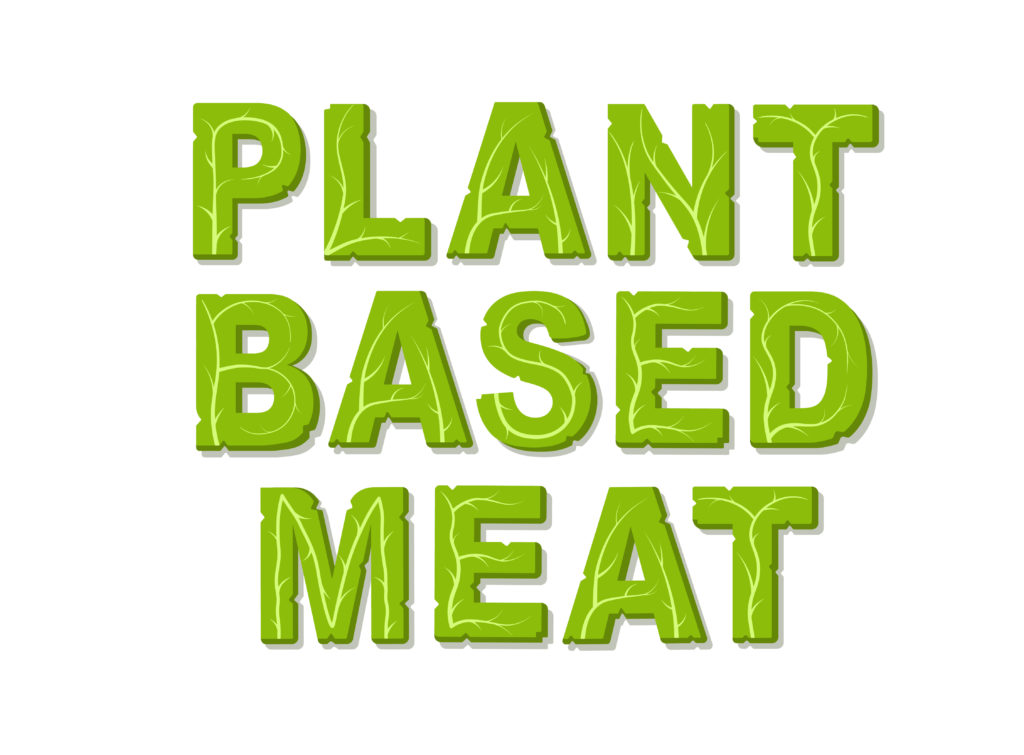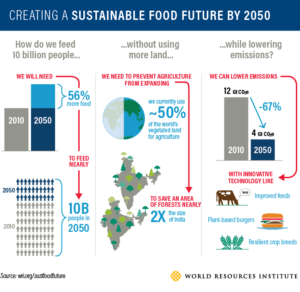
U.S. plant-based meat sales exceeded $5 billion in 2020. While the global plant-dairy alternative market is projected to rise to $21.7 billion by 2022. It’s increasingly obvious that a greater number of consumers are demanding plant-based products, either for medical reasons or as a healthier lifestyle choice. None of this has gone unnoticed by the larger, non-vegan industry players who are concerned about their business models becoming outdated.
The world’s population is projected to reach close to 10 billion people by 2050, and there aren’t anywhere near enough resources on the planet to support animal agriculture on that scale, which is why the growth of companies making plant-based meat, dairy and eggs is crucial. If people can enjoy the same texture, taste and flavor from non-animal versions as they do from animal-based ones, the accelerated growth of vegan offerings becomes inevitable.

This fact — already evolving in the marketplace — is forcing companies to sit up and take notice! They no longer view vegan food companies as mere blips on the radar, but rather as genuine competitors to learn from and collaborate with. They’re recognizing that the profit potential of plant-based products is now so significant that the risk of not investing in what was once seen as a niche market, continues to grow. It also appears that the most efficient way for them to get involved is to acquire vegan companies that have a track record of success. Hence, they’re buying into the growth and future of the plant-based market and disruption of the food industry as we know it.
However, not everyone sees these transactions in a positive light, particularly some vegans. Some even call for boycotts of the vegan companies they claim to have “sold out.” Some members of the plant-based community characterize these foods as being unhealthy and over-processed — declaring them worse than animal products. Vegans who defend the acquisitions have been accused by fellow vegans of being “apologists for the meat industry” and “betrayers of the animals.” There are indeed many perspectives from which to view these events and they’re worth parsing out — if not to change our own position, but to at least understand some others.
The Animal-Product Company
The purpose of a business is to generate profits from the products or services it offers. The main reason corporations have included the use of animals in their business models is because it’s been profitable for them. That is to say, the people who run animal-product companies are not necessarily committed to killing animals as much as they are committed to making money. If they could make as much money—or more—not killing animals, they would surely do it.
They’re not committed to animal cruelty; they’re committed to profits.
With the growth of plant-based products in the marketplace, companies who’ve relied solely on profits from animals are now diversifying their portfolios — even making their own line of plant-based goods:
- Tyson Foods launched a line of a plant-based protein called” Raised & Rooted”
- Kellogg added “Incogmeato” to its meat-free Morningstar Farms line
- Spam maker, Hormel Foods, has created their own line of plant-based meats called “Happy Little Plants”
In addition to creating their own vegan products, they’re buying into the plant-based market by acquiring smaller, proven companies. This enables them to dip their toes into the plant-based market with seemingly less risk.
The Vegan Company
Being small has its liabilities: namely, money. The most pressing challenge for any company that wants to grow is how to finance that growth. The dilemma is a familiar one for many successful small businesses: stay independent and have a large impact on a small scale or take more risk and attempt to have a greater impact on a larger scale. It’s a very difficult decision, especially for visionaries, who have passionately invested in their ventures and want to make a difference.
In weighing the risks and benefits, smaller companies recognize that a larger company—with access to larger distribution channels and economies of scale (Oh, and a lot more money!) can make their product more affordable and accessible to a wider range of consumers.
One of the complaints vegans make is that these big corporations are just “trying to make money off of vegans.” The truth is: so are the small, independent companies that are rooted on. They’re successful if we buy their goods. They survive because they’re making money and there is absolutely nothing wrong with that. We should be excited that larger corporations and investors are recognizing that vegan businesses are viable, profitable ventures to collaborate with and sometimes acquire. We want cruelty-free, animal-free products to dominate the marketplace. Don’t we?
Non-Vegan Consumer Perspective
When vegans call for boycotts of companies who’ve been purchased by larger corporations, the message conveyed is that they want to hinder the growth of these products in the marketplace, which keeps their prices high. This, in turn, limits their availability and affordability to a broader group of consumers.
People don’t aspire to purity or ideology when they’re hungry. They aspire to fill their bellies in a cost-effective way. That’s not to say we shouldn’t cook at home and rely on some better ingredients, but nobody does that 100% of the time.
The bottom line is the more vegan products in the world, the better regardless of the manufacturer. While it’s tempting to demonize an acquired vegan company and lionize an independent one, the truth is the smaller brands get a boost when larger brands receive more capital and exposure. As consumers, we can support whichever ones we want, which is the beauty of a free market.
What We Do
At Demand Wealth we share your concerns and passions regarding protecting animals and the environment! When it comes to investing in vegan companies, we strive to provide clarity and simplicity by eliminating the guesswork. As a result, we have developed the ‘Demand Cruelty Free’ portfolio for this very purpose. It contains cruelty free screened and globally diversified companies that align with your values, risk profile and financial needs.
Are you interested in aligning your Vegan lifestyle with an investment strategy that embraces it? If so, we are here to help! Open an account here or schedule a Zoom conference with one of our advisors today.
This report is a publication of Demand Wealth. Information presented is believed to be factual and up-to-date, but we do not guarantee its accuracy and it should not be regarded as a complete analysis of the subjects discussed. All expressions of opinion reflect the judgment of the author as of the date of publication and are subject to change.
